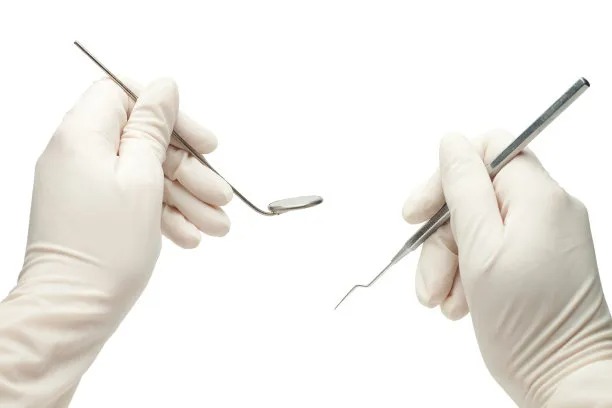The Simple Yet Essential Health Benefits of Extracting a Tooth When Necessary for Overall Dental Wellness
Summary: Tooth extraction is often perceived as a last resort in dental care, but it can be a crucial step towards achieving overall dental wellness. In this article, we will explore the essential health benefits of extracting a tooth when necessary. We will cover four key aspects: alleviating dental pain, preventing infection, avoiding dental overcrowding, and promoting better dental hygiene. Each aspect will provide insights into how timely tooth extraction can support both immediate relief and long-term oral health.
1. Alleviating Dental Pain Effectively

One of the most immediate benefits of tooth extraction is the relief from severe dental pain. When a tooth becomes damaged, decayed, or infected, it can cause excruciating discomfort that affects daily life. Removing the problematic tooth can provide instant relief, allowing individuals to return to normal activities without the nagging distraction of pain.
Moreover, chronic pain from dental issues can lead to elevated stress levels, affecting both mental and physical health. By addressing the source of the pain through extraction, individuals can alleviate this burden and improve their overall quality of life. It also paves the way for more comprehensive dental treatments without the pain hindrance.
Finally, alleviating dental pain through extraction can encourage individuals to maintain regular dental check-ups. Once relieved of pain, patients may become more proactive about their oral health, seeking preventive care and avoiding future dental issues.
2. Preventing Infection and Systemic Issues
Tooth infections can rapidly escalate, leading not only to dental issues but also posing risks to overall health. When a tooth is infected, bacteria can penetrate the bloodstream, causing systemic infections that may affect vital organs. Extracting the infected tooth can help prevent these complications by eliminating the source of bacteria.
Additionally, tooth infections can result in abscess formation, which can lead to swelling and even facial deformity. Tooth extraction is often the quickest and most definitive treatment for an abscess, reducing the risks associated with untreated infections. This proactive approach to dental care is vital for maintaining not just oral health but overall wellness.
Finally, by preventing infection through timely extraction, individuals can avoid the need for more invasive treatments, such as root canals or extensive restorative procedures. This not only saves time and money but also preserves the integrity of surrounding teeth.
3. Avoiding Dental Overcrowding and Misalignment
Dental overcrowding occurs when there isn’t sufficient space in the mouth for teeth to align properly. This can lead to misalignment, which presents aesthetic issues and disrupts the biting and chewing functions. Extracting one or more teeth can often be a necessary measure to create space, promoting better alignment.
Additionally, overcrowded teeth can be challenging to clean, increasing the risk of decay and gum disease. By addressing overcrowding through extraction, individuals can simplify their dental care routines, making it easier to maintain proper hygiene.
Timely extraction also plays a crucial role in orthodontics. For patients requiring braces, removing certain teeth can significantly enhance the efficacy of orthodontic treatment, leading to a well-aligned and healthy smile more quickly.
4. Promoting Better Dental Hygiene Practices
When tooth extraction is performed as a preventative measure, it significantly enhances overall dental hygiene. Fewer problematic teeth mean easier access to cleaning the remaining teeth, reducing the buildup of plaque and the risk of periodontal disease.
Moreover, individuals who undergo tooth extraction often become more conscious of their oral hygiene practices. They are typically more motivated to establish a dedicated dental care routine to prevent further dental issues. This proactive approach fosters a cycle of improved dental health and regular dental visits.
Finally, promoting good dental hygiene can lead to lasting benefits beyond tooth extraction. Healthy habits, coupled with professional guidance, can ensure that individuals maintain robust dental health for years to come.
Summary:
In conclusion, the decision to extract a tooth should not be taken lightly, but it offers numerous health benefits when conducted for valid reasons. Alleviating pain, preventing infections, avoiding overcrowding, and promoting better dental hygiene are all compelling reasons to consider extraction when necessary. Taking proactive steps in dental care can pave the way for a healthier future, ensuring wellness both in and out of the dental office.
This article is compiled by Vickong Dental and the content is for reference only.



